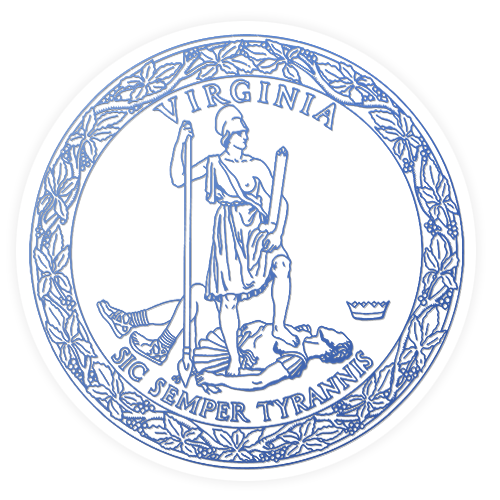
RICHMOND—Governor Ralph Northam proclaimed the month of May as Asian American and Pacific Islander (“AAPI”) Heritage Month in the Commonwealth and launched the inaugural AAPI Heritage Month Historical Marker Contest to celebrate the history and achievements of AAPI Virginians.
Virginians are encouraged to participate in AAPI Heritage Month events hosted by the Northam Administration and community organizations taking place online and throughout the Commonwealth. A list of some of these events can be found here. The text of Governor Northam’s AAPI Heritage Month proclamation can be found here.
Governor Northam also issued the following statement and shared a new video message about AAPI Heritage Month, which is celebrated in May in Virginia and nationwide. Watch the video here.
“This May, during Asian American and Pacific Islander Heritage Month, we recognize the many contributions of AAPI communities to our Commonwealth and country. AAPI Virginians lend their rich heritage to enhancing our Commonwealth in all areas of life including business, education, arts and sciences, law enforcement and our military. In challenging and unprecedented times like these, we are profoundly grateful for the members of Virginia’s AAPI community who are working on the front lines—including health care professionals and essential workers.
“Since the start of the pandemic, we have seen an alarming rise in hateful rhetoric and violence against Asian Americans. As Virginians, and as Americans, we have a shared responsibility to make clear that this is not who we are.
“Our Administration remains committed to building an equitable and inclusive Virginia, where people of all origins are welcomed and treated with dignity. The inaugural AAPI Heritage Month Marker Contest is one important way that we are working to share their stories and achievements. I encourage Virginians to join us in celebrating AAPI history, people, and cultures, not just this month, but every month of the year.”
The AAPI Heritage Month Marker Contest is an opportunity for Virginia students, educators, and families to learn about the important role AAPI individuals have played in the Commonwealth’s history and submit ideas for new historical markers to the Department of Historic Resources. Additional information about the contest and resources to help educators guide their classes through important discussions on AAPI history and initiate project-based learning are available here.
Student submissions are due by Tuesday, June 15. The Department of Historical Resources will review all submissions in consultation with Governor Northam and members of his Cabinet, and five to ten winning submissions will be installed as new historical markers along Virginia’s roadways.
“The AAPI Historical Marker Contest provides students and educators alike an opportunity to learn about the incredible contributions of AAPI Virginians,” said Secretary of Education Atif Qarni. “Teaching students about the impact that AAPI individuals have had in Virginia and the United States is essential to ensuring our schools are culturally relevant communities that foster high academic achievement. I invite all educators and students to help us tell a more complete Virginia story.”
The Northam Administration has worked diligently to increase outreach and community engagement with Virginia’s AAPI communities. During the month of April, Governor Northam hosted six roundtable discussions across the Commonwealth with a diverse group of AAPI community advocates, faith leaders, business owners, students, educators, and frontline workers. Participants shared their lived experiences and provided recommendations on how the Administration can work to combat the rise in hate incidents toward AAPI communities. The themes that emerged included diversity and equity in education, barriers in equitable language access, issues with reporting and responding to hate crimes, increasing awareness of public safety, and honoring AAPI contributions. Conversations about public education centered on updating PreK-12 curriculum to include more content on AAPI history and culture.
“As we provide unique opportunities to think more deeply about Virginia history, we also must provide innovative ways for our students to leverage their academic learning and take action, said Chief Diversity Officer Dr. Janice Underwood. “It is critical that we continue to advance equity by telling a more complete version of our shared history and offering robust opportunities for community conversation. I appreciate that Governor Northam has prioritized hearing directly from AAPI Virginians and is actively working to address their concerns.”
The Culturally Relevant and Inclusive Education Practices Advisory Committee, which was established through legislation approved during the 2020 General Assembly Session, is tasked with making recommendations on culturally relevant and inclusive education practices in Virginia’s public schools. Earlier this year, Governor Northam appointed committee members with a range of perspectives and is working to ensure that AAPI history, and that of other historically marginalized communities, is represented in the standards.
The Office of Diversity, Equity and Inclusion (ODEI) is also developing policies to ensure equitable access to state government services for Virginians with limited English proficiency. The ODEI will present their recommendations to the Governor and the Chairs of the House General Laws Committee and Senate General Laws and Technology Committee by November 1, 2021. Additionally, the ODEI and Secretary of Public Safety and Homeland Security continue to work together to address and collect information surrounding hate incidents, including racial slurs, discriminatory treatment, and violence.
# # #